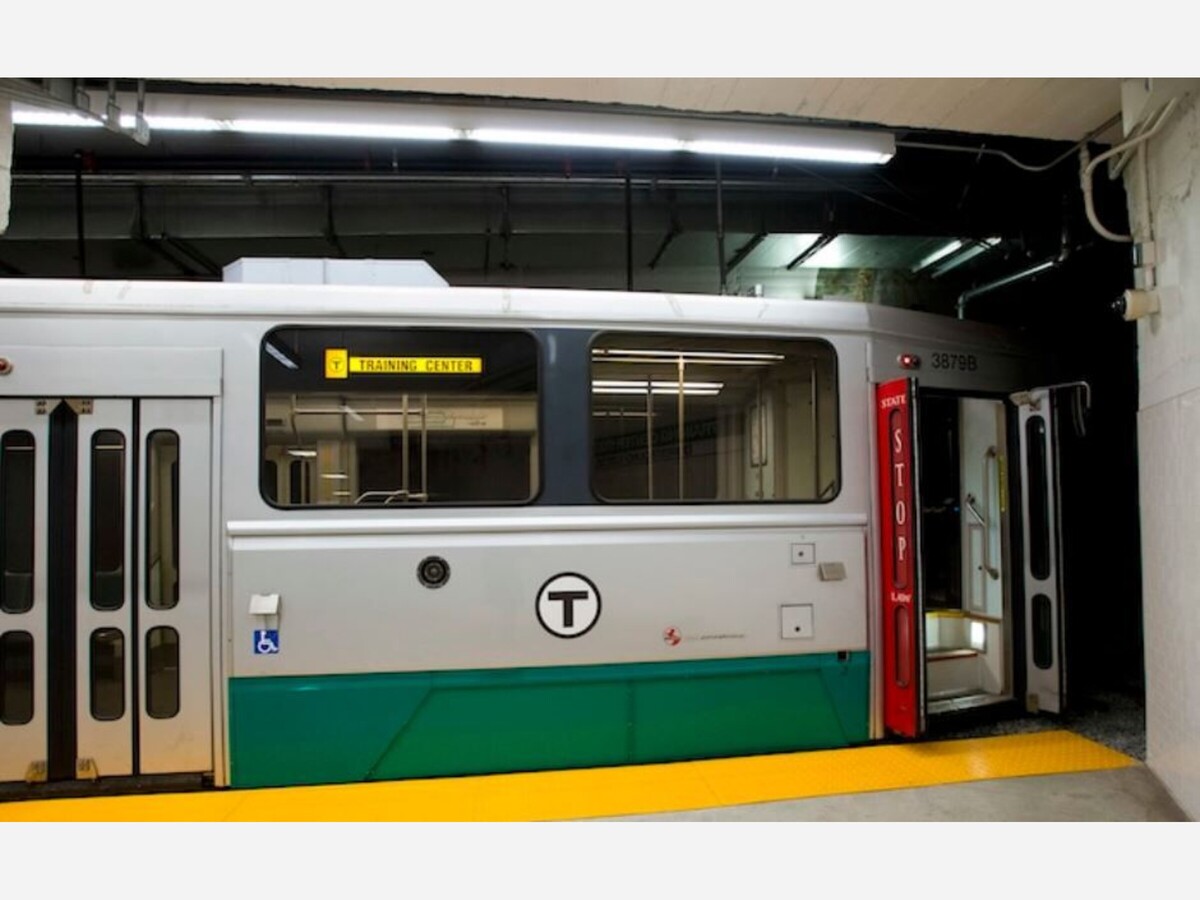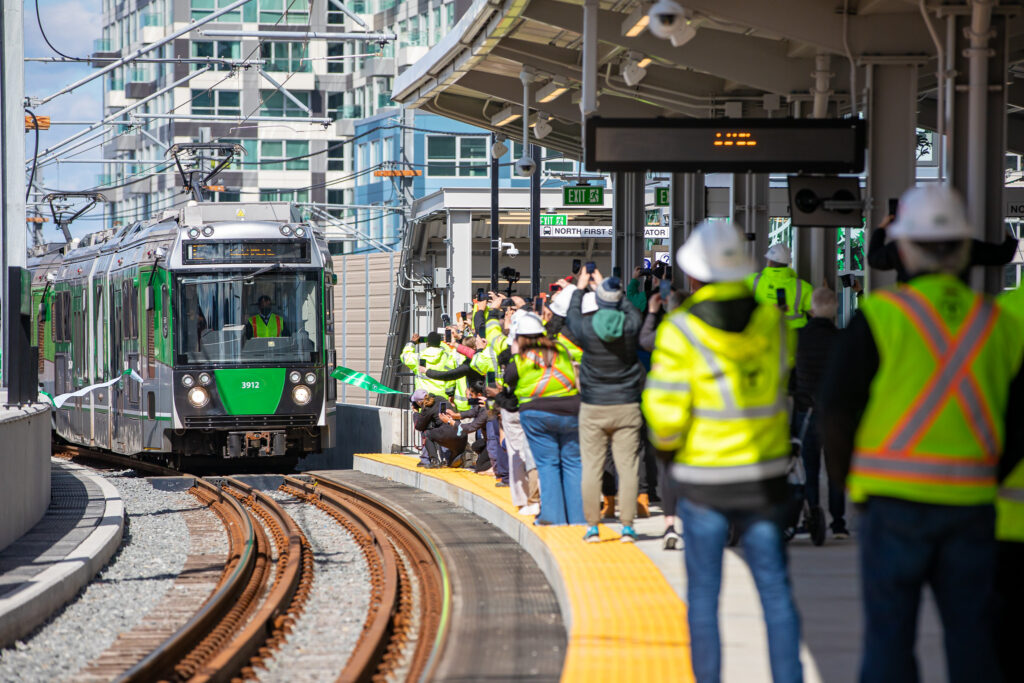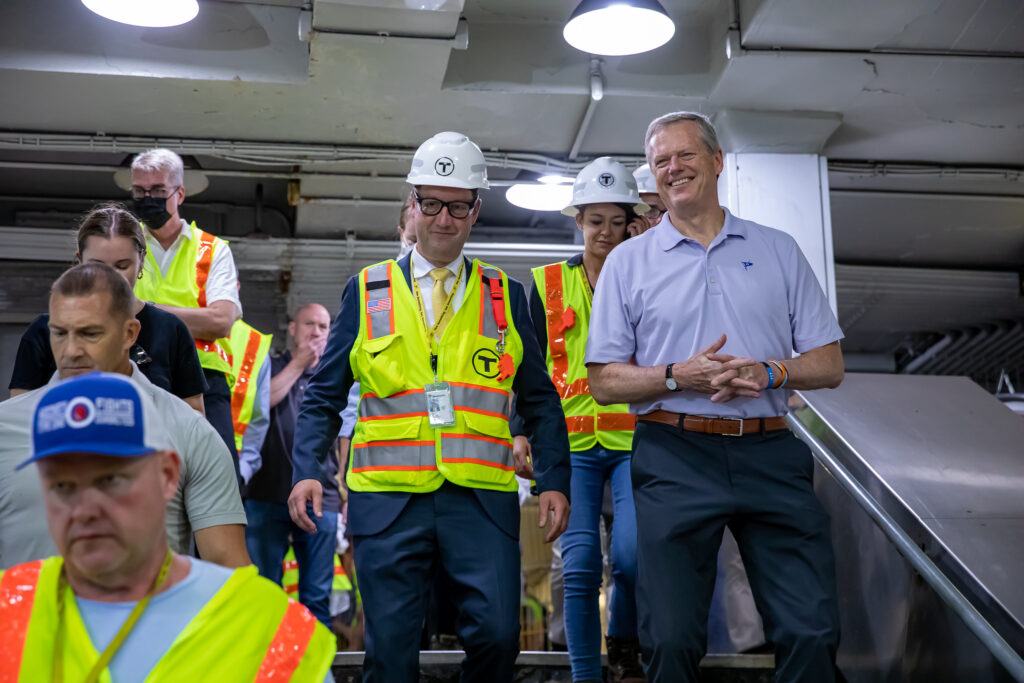Image

Who is getting paid big bucks to fix the T? In many cases, former MBTA workers.
There’s the former general manager who is getting three T-related retirement checks, and who came under fire for losing millions while running the MBTA’s pension fund.
And the department head who allegedly disparaged a Black employee who later won millions in a discrimination lawsuit against the T.
And then there are people who oversaw the T’s operations center and post-crash reporting—areas that have specifically come under fire from the federal government for poor performance—collecting paychecks to fix those departments.
Advocates said former employees playing a big role in new T work is a major problem, potentially leading to those employees evaluating their former work, and to fewer new perspectives helping fix an agency with severe problems.
Reggie Ramos, executive director of Transportation for Massachusetts, an advocacy group trying to improve public transit, said the T needs to look beyond former employees—not just to avoid potential ethical dilemmas, but to actually address deep-seated deficiencies. “Where safety is the key consideration, conflict of interest takes on a whole new dimension,” Ramos said. “It behooves public agencies to be judicious about this.”
“You’re bringing consultants in because you want expertise from the outside,” said Stacy Thompson, executive director of the infrastructure safety group LiveableStreets Alliance. “If most of the team is from inside [the MBTA], you’re not getting that outside perspective that’s pretty desperately needed right now.”
 Baker-Polito Administration celebrates opening of the Green Line Extension | Image via Joshua Qualls and Jack Lowy/Governor’s Press Office
Baker-Polito Administration celebrates opening of the Green Line Extension | Image via Joshua Qualls and Jack Lowy/Governor’s Press OfficeSince 2022, the MBTA has been required to make significant changes following a Federal Transit Administration audit. The report lambasted the agency’s operations following numerous derailments, crashes, and other safety failures, including the dragging death of a rider, Robinson Lalin, by a Red Line train. The FTA ordered the MBTA to increase safety training and hire more employees along with numerous other special directives. But over the subsequent 18 months, the T has still been racked by major safety problems, like trains nearly striking track workers, along with performance issues.
And training at the agency has been a problem as well, according to multiple reports. In a special directive to the T, the FTA decried training at the T’s Operations Control Center, which coordinates all train movements in the system. And just last month, an outside contractor (see sidebar) hired after T officials placed the entire train system on a slowdown order for several days in March described a “lack of complete clarity regarding the roles and responsibilities” in the T’s maintenance department, as well as limited maintenance experience and “inadequate training” in his final report.
Last year, the MBTA put out a bid for contractors to develop and update training for workers across the rail system. It specifically called for: “The consultant [to] review and perform a ‘gap analysis’ of the existing training materials to identify (1) critical omissions in the existing materials; and (2) critical training materials that should be added.” The bid reads, in part, “The new and or updated training materials will be used to support the training, qualification, certification and recertification of OCC staff and light rail and heavy rail operations staff (rail operations staff).”
And contractors were given two additional tasks—recommending best practices for enhancing training, with a focus on adult learning; and analyzing existing training materials to find “critical omissions” that need to be fixed. It was a far-reaching scope of work, essentially to sniff out gaps and then assist in fixing protocols and preemptive precautions that had eroded to the point where federal officials threatened to take over.

Ultimately, the MBTA awarded a joint bid—from Alternate Concepts, Inc. and RailPros Inc.—a contract for more than $4.1 million. Of that expenditure to improve the system, more than $700,000 will go to former T workers.
The Boston-based Alternate Concepts was founded by former MBTA leaders. The transit management company, which offers consulting and operations services, has done work for the T before, receiving $4.75 million last year alone. According to its bid, the team it will deploy for T training is staffed by former agency higher-ups—including ones who had high-level roles in departments under scrutiny now.
William Hogan will serve as “Subject Matter Expert – Rail OCC.” He has plenty of experience in that department, having worked at the T’s OCC from 1996 until 2021, rising to the position of deputy division chief of OCC with a salary of $120,000. Hogan is now set to get a lot more than that while working on the training manual project. According to the bid, he bills at $250 an hour and will bring in more than $443,000 during the course of the project.
Ramos, the Transportation for Massachusetts executive director, said the prospect of a former OCC manager working in the same department is a recipe for conflict: “It becomes incumbent on agencies to examine whether a contract results in an absurd situation … a situation where you’re doing a gap analysis on your own previous performance and purview of your previous responsibilities is not an ideal scenario.”
Charlie Murphy, another former T leader, is set to make $56,000 at the rate of $175 an hour as Alternate Concepts’ subject matter expert on “Right Of Way Safety.” He served as deputy director of transportation safety from 2016 to 2020 and deputy director of investigations and safety oversight, according to his resume. That included, according to his publicly listed credentials, making sure that accidents “are properly investigated and reported to the State Safety Oversight Agency (Department of Public Utilities).”
Thompson of LiveableStreets said the heavy presence of former T workers handling training materials indicates an unwillingness to look for outside help or move beyond its current culture which has been cited for multiple serious safety issues. Among other problems, according to WBUR, the department where Murphy comes from routinely filed late accident reports. And the FTA recently blasted the T for yet again not reporting near-miss collisions between trains and workers to the DPU.
“It would’ve been a better move to hire a team with national expertise, from other mass transit systems,” Thompson said. “I do think the T needs support from outside. Even beyond questionable past history, it’s clear hiring on the inside hasn’t gotten us where we need to go—we need that from outside sources.”
In defense of such hires, Alternate Concepts president Jim O’Leary wrote in a statement: “We are proud of the people who work for ACI. … We are one of the largest domestic contractors for operations and maintenance of transit systems in the United States. We operate systems in Denver, Phoenix, Puerto Rico and Connecticut. We are pleased to share our professional advice with the MBTA.” (Read the full Alternate Concepts statement here).
In a statement from the MBTA, spokesman Joe Pesaturo wrote, “Alternate Concepts principals [Jim] O’Leary and [Michael] Mulhern are experienced transportation experts and deeply familiar with the MBTA and the challenges facing it. As it works to improve safety and service reliability, the MBTA is seeking support from a variety of expert sources.” (Read the full MBTA statement here).

The OCC was one of the areas most heavily criticized by the Federal Transit Administration last year, with the feds saying, “MBTA has created a management process whereby OCC staff members are required to work without certifications, in a fatigued state, and often fulfilling multiple roles at once.” They ordered the T to immediately increase staff in the department and improve safety, among other directives.
MBTA spokesman Pesaturo said the Alternate Concepts team helped the T to close out four corrective action plans the FTA required for the Operations Control Center. T officials submitted reports saying that OCC staff were no longer doubling up duties and began taking required breaks, among other fixes, and the FTA signed off on them.
Watchdogs commended the T for closing out those safety items, but said it’s critical to consider how the system got to the point of requiring federal intervention.
“I’m interested in finding out what happened to the gap analysis [the bid required], where it goes into what went wrong, and why things fell short,” Ramos said. “It is positive those items were closed out, but we need to determine why there were gaps in the first place so that doesn’t happen again. In the face of all these safety issues there are two nagging questions—what brought us here, and where do we go from here? You cannot have one conversation without the other.”
Ramos said a company with fewer MBTA connections might be better to examine what has gone wrong at the T.
“There really is quite a need to be judicious about where objectivity should come from and reside,” Ramos said. “On the procurement side of things, I think it’s always a good idea to deepen or widen the bench and attract diverse experts. Always drawing from the same pool of personalities is not optimal, this highlights the need for diverse talents.”
 Former Gov. Baker joins MBTA General Manager Steve Poftak and Secretary of Transportation Jamey Tesler to receive an update on repairs to the Orange Line at the State Street MBTA station in Boston on Aug. 28, 2022 | Image via Joshua Qualls/Governor’s Press Office
Former Gov. Baker joins MBTA General Manager Steve Poftak and Secretary of Transportation Jamey Tesler to receive an update on repairs to the Orange Line at the State Street MBTA station in Boston on Aug. 28, 2022 | Image via Joshua Qualls/Governor’s Press OfficeSome key members of the Alternate Concepts team haven’t worked at the T in several years, but are still tied to dysfunction in the agency.
William McClellan, the company’s rail operations lead and subject matter expert for light rail, worked at the T for more than a decade and last served as assistant general manager of rail operations in 2017. But while serving as director of light rail operations, McClellan racially disparaged a T worker, according to a successful civil lawsuit the employee lodged against the agency.
In 2013, T officials fired a Green Line operator after she got into a fight, but the operator, a Black woman, said she was wrongfully terminated and in 2015 filed a federal lawsuit against the MBTA, alleging racial discrimination by McClellan and other T workers. During the trial, the operator and other witnesses said they saw and heard numerous instances of racial harassment, while one of the operator’s co-workers testified she heard McClellan tell another T official, “I’ll get her black ass” in reference to the operator.

The jury ultimately ruled in favor of the operator and though the MBTA appealed, they were denied. The operator was awarded more than $2.6 million.
For his work on the training materials contract, McClellan is set to be paid $175 an hour, ultimately getting $176,000. But he should not be back at the T, Ramos said.
“A racial slur, there is no place in any organization that claims safety as its values for that,” Ramos said. “It isn’t just the safety of the riders, it’s about the safety of employees, racial slurs have no place.”
And the project executive for the entire operation is former MBTA General Manager Michael Mulhern. He retired from that top spot in 2005, moving on to collect a $150,000 pension while also receiving another $167,000 from an additional MBTA retirement fund, according to reporting by FOX25. After he left the GM role, Mulhern immediately became head of the MBTA’s billion-dollar pension fund, pulling yearly salaries of well over $200,000 for the next decade.
But Mulhern stepped down in 2016 after the Boston Globe reported on how the fund lost $25 million on an investment under his watch. Now with Alternate Concepts, he is set to pull in $41,000 at a rate of $300 an hour on the training manual contract.
Ramos and Thompson both noted the contract was awarded under old leadership—when Charlie Baker was governor and Steve Poftak was in charge of the MBTA. But Thompson said she thought Gov. Maura Healey and new T General Manager Phillip Eng could still impugn the resulting work.
“Given all the feedback from the FTA, it would be worth the Healey administration and the new general manager reviewing this contract and similar contracts,” the LiveableStreets director said. “Even if the issue of former MBTA employees wasn’t the case, it’s still worth looking at deliverables met and the expertise that was hired. We’ve learned a lot since we signed on the dotted line for this agreement.”